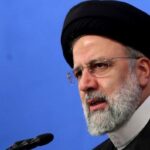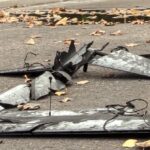
(Recasts throughout with briefing)
By Hyonhee Shin and Soo-hyang Choi
SEOUL, Sept 2 (Reuters) – North Korean women and girls face increased pressure in providing food for their families and the state under coronavirus measures even as closed border hamper market activity and push up prices, a U.N. expert said on Friday.
Elizabeth Salmon, the new U.N. special rapporteur on human rights in North Korea, expressed concern about the “disproportionate impact” of the isolated country’s COVID-19 rules on women and girls as she wrapped up her first visit to South Korea since taking office last month.
With a lack of access to first-hand information, she presented her findings from interviews with recently arrived North Korean defectors, government officials and civic groups.
Women and children were struggling to meet quotas of material and labour imposed by institutions including women’s groups and schools due to limited economic activity after the country sealed its borders in early 2020, Salmon said.
“Market activities, which the women relied on for their living, were greatly reduced due to the prolonged closure of the borders,” she told a news conference.
“With no alternative source of income, they are still required to feed their family, look after sick family members, including potentially those with COVID-19, while also providing contributions to the state.”
Salmon also raised the possibility of starvation, citing a defector who reported an increase of up to 700% in food prices last year, with some 40% of the country’s 25 million people food insecure even before the pandemic.
A U.N. report released this week also said North Korea’s COVID measures had exacerbated its human rights situation.
Salmon, a Peruvian international law professor, said she focused on women with the aim to “move forward” on the North’s past pledges to improve their rights.
North Korea has repeatedly rejected accusations of human rights abuses and criticised U.N. investigations into rights as a U.S.-backed scheme to topple the state.
Earlier on Friday, North Korea’s foreign ministry said in a statement carried by the KCNA state news agency that Salmon was a “biased U.S. puppet” and North Korea would neither recognise nor deal with her.
We will “never pardon the U.S. and its vassal forces’ ‘human rights’ racket against the DPRK which is aimed at overthrowing its social system,” KCNA said.
When asked about the comment, Salmon said she regretted a lack of cooperation but vowed to continue trying to engage with North Korea. (Reporting by Soo-hyang Choi; Editing by Christopher Cushing, Robert Birsel)




